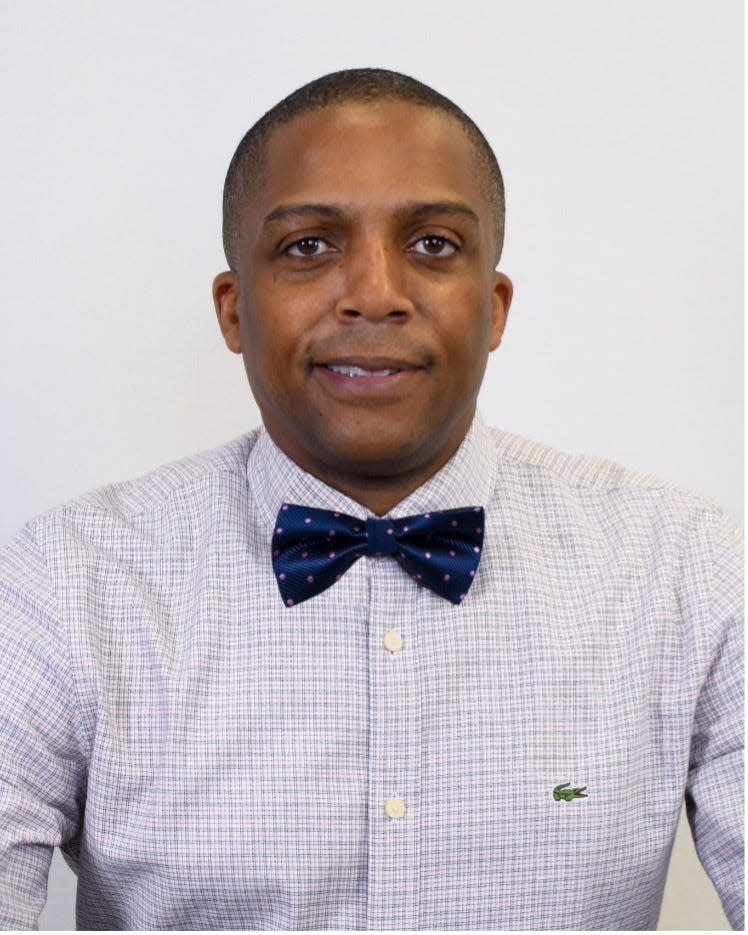Fog and friction: The invisible enemy that is COVID-19 Long Haul Syndrome | Opinion
- Oops!Something went wrong.Please try again later.
The battle with the COVID-19 pandemic is often referred to as a war against an invisible enemy. This enemy has claimed more than 785,000 casualties in the United States and nearly 50 million have been infected and survived the COVID-19 storm. Unfortunately, although they have survived, many are not thriving and are still battling the remnants of the infection.
Whether it is called Post-Acute COVID Syndrome, Long COVID Syndrome, Chronic COVID Syndrome or Post-Acute Sequelae of SARS-COV2, we are referring to our brothers and sisters, friends and families, colleagues and classmates who are suffering from COVID-19 Long Haul Syndrome. I have the privilege of providing care for many such people and what has become clear is that their voices are not being heard.
As a neurologist specializing in brain injury medicine, I have spent my career working with people whose brains are not working as they should. Given the large number of people inflicted by this syndrome, medical providers, friends, families, employers, colleagues and teachers must be aware of it so that we do not allow these essential members of our society to live in the shadows. You may not realize that someone you know is suffering from Long-Haul Syndrome because many suffer in silence. Many people affected by this dreaded syndrome are unaware that their current state of decreased function is related to their prior COVID- 19 infection. They may have noted that they do not feel quite right, and they may have thought their only symptom of COVID was the loss of smell and taste — but the decline in their performance at work and at home tells a different story.
Long-Haul Syndrome is a multi-system disease that follows initial symptoms of COVID-19 infection, typically persisting beyond 12 weeks from the initial infection. This syndrome can occur in patients even if they were not hospitalized and only suffered minor symptoms of the initial COVID infection. The symptoms are like those of patients with chronic fatigue syndrome, mast cell activation syndrome, systemic mastocytosis and the brain fog that can mirror what is experienced by some patients who have been treated with chemotherapy.

Many patients experiencing Long-Haul Syndrome describe brain fog as a feeling that their thinking is sluggish, fuzzy and not sharp. They suffer from memory loss and have difficulty concentrating and multi-tasking. They may easily lose their train of thought, take longer to complete tasks, misplace items and, in severe cases, even get lost in their own home. One of my patients cried in my office because of how challenging she has found it to multi-task at home and feared she would not be able to return to work as an executive assistant, casting uncertainty about her future income. Mundane tasks that were previously done without much thought may now require a great deal of effort and become a frustrating experience.
If you have ever taken an antihistamine, pulled an all-nighter, had jetlag or did not get a good night's sleep, then you may have experienced brain fog. The main distinction of patients experiencing the brain fog of COVID-19 Long-Haul Syndrome is that they are experiencing these symptoms every day and it is uncertain when the fog will lift.
I have found that patients experiencing brain fog appreciate it when medical professionals take the time to listen to them and help them to understand what is happening with their body and their brain. The most common question people ask me about the Long-Haul Syndrome is "How long am I going to feel like this?" This is an active area of research in labs and clinics around the country. Some patients have seen symptoms resolve after a few months, others are still experiencing symptoms a year after having COVID-19, while others are experiencing a waxing and waning course. There is anecdotal evidence of patients getting better after getting one of the COVID vaccines. Unfortunately, this long duration of symptoms leaves many patients feeling hopeless.
For patients who are recovering, I recommend performing some degree of aerobic exercise, perhaps just two to three minutes a few times a day and gradually build upon the amount of time of exercise until you can complete 30 minutes per day, five days per week. This physical activity may help clear toxins from the body. Some people who have had COVID-19 may experience post-exertional malaise, which results in a drop in energy levels after physical activity.
Eating a healthy and balanced diet, including fruits, vegetables, whole grains, and other anti-inflammatory foods can improve your thinking, memory and brain health. During recovery, you should avoid the use of alcohol and illicit substances that will delay progress. Finally, sleep is important as toxins are cleared out from your brain during the deep stages of sleep.
You can engage in social activities but be careful not to overstimulate your brain. It is also beneficial to practice mindfulness activities like journaling, yoga and listening to music.
I also recommend to people experiencing Long-Haul Syndrome to make active use of a calendar, note-taking and keeping "to-do" lists to assist with memory. It is also helpful to use word associations to help find the right words. I highly suggest keeping a “memory bowl” to place items frequently lost, like your cell phone, wallet, or keys. You should also engage in activities to build cognitive endurance to reduce cognitive fatigue and improve concentration.
For all the people suffering from COVID-19 Long-Haul Syndrome, there is hope. I encourage medical providers to take the time to learn about this syndrome because not all patients will be forthcoming. I work with medical students, and I encourage them to ask each patient about their experience with COVID-19 — whether they have had the virus, are still experiencing symptoms, have had the COVID-19 vaccine, and any other experiences with COVID-19 or its after-effects.
Just like the battle with an enemy, it is important that we stand by each other and work to defeat it. Medical providers: take heed and validate these patients' concerns to be a part of their healing process and do not stand in the way of their recovery. Friends, families and other potential allies: your support is appreciated as well. Let us work together to make it through this long haul against the invisible enemy.

Mil Etienne is associate professor of neurology and medicine and vice chancellor for diversity and inclusion at New York Medical College.
This article originally appeared on Rockland/Westchester Journal News: Fog and friction: The enemy that is COVID-19 Long Haul Syndrome

